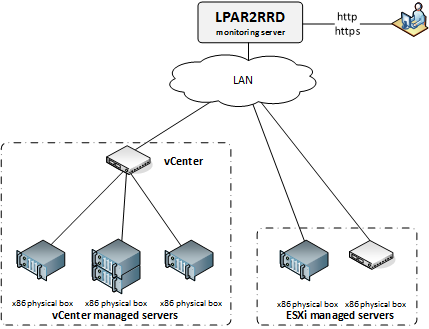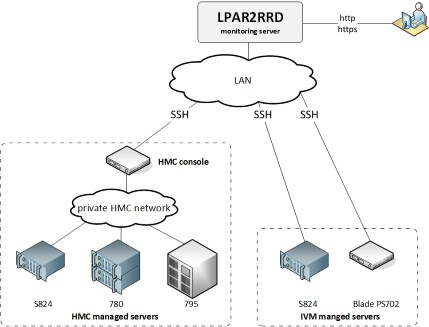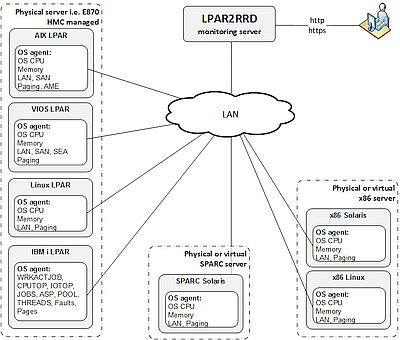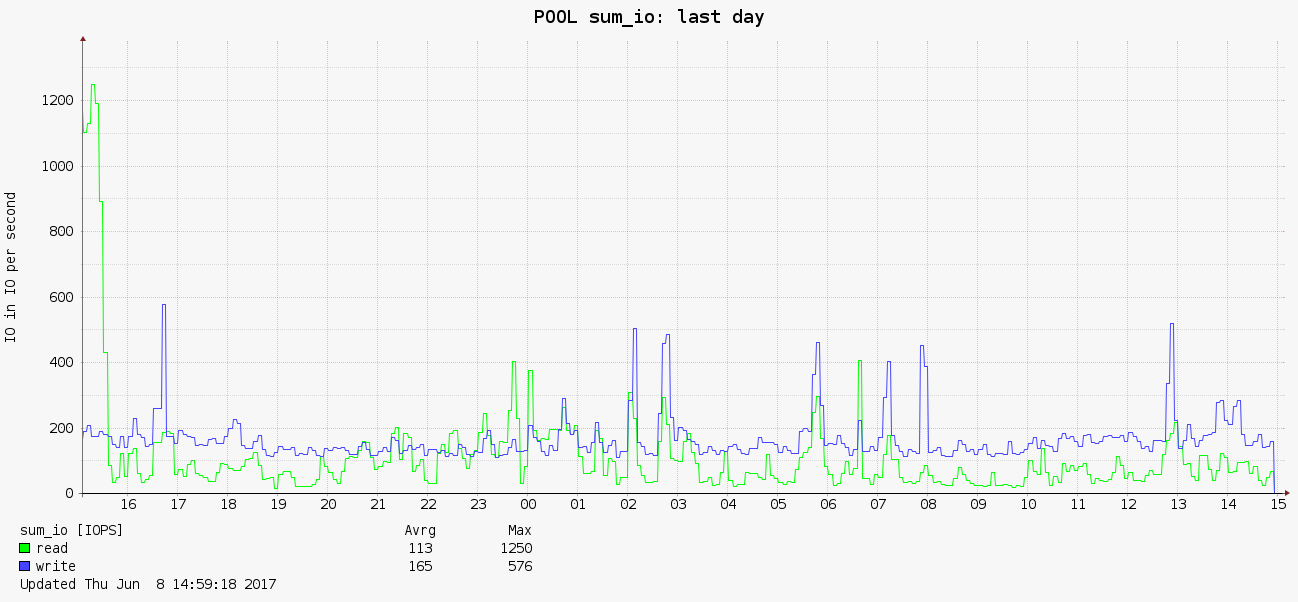XoruX - free monitoring of virtual infrastructure, storage and data transfer systems
 =
=  +
+ 
By the nature of my activity during the audit, I often encounter various monitoring systems with our customers. In addition to the well-known Zabbix, Nagios, Cacti and others, very interesting specimens are sometimes found. Today I would like to talk about one of such cases - a free virtual infrastructure monitoring system from XoruX. No mention of this company and its products was found on Habré, so I decided to fix this situation. Interested, I ask for cat.
XORUX
XoruX sro is a Czech company that develops 2 tools available under GPLv3 license for monitoring virtual infrastructure:
- LPAR2RRD - server infrastructure monitoring for VMware and IBM Power Systems.
- STOR2RRD - monitoring storage systems from EMC², IBM, HP, Hitachi, NetApp and Lenovo, as well as SAN switches Cisco, Brocade and others based on them.
XoruX sro also offers several levels of paid support and a SaaS version of its products.
You can download and deploy XoruX on your site in the form of a tar archive or image for VMware, Hyper-V, Docker. The current XoruX-2.01 image is based on CentOS 7.3 and contains LPAR2RRD version 5.01 and STOR2RRD version 2.01. Resource requirements are not high: 1vCPU, 3GB vRAM, 50GB vHDD.
Before deploying on your site, both tools can be viewed on demo sites: LPAR2RRD and STOR2RRD .
LPAR2RRD
It supports both “agent less” monitoring of VMware and IBM Power Systems, and monitoring through agents for systems such as AIX & Linux, IBM i (AS / 400), Solaris.
How it works
VMware agent less

IBM Power Systems agent less

OS agent

The system is extremely easy to set up. All that is needed is to download the archive from the VMware vSphere Perl SDK (not distributed as part of the VM image) and set the credentials for connecting to the ESXi host or VCenter server (in the case of VMware), check the “Test” connection and start the “run data” data collection load ":
The system will do the rest itself. You just have to enjoy the graphs: last day, last week, last month, last year and trend (1 month, 3 month, 1 year) in all the main sections of vCenter / Cluster / ESXi / VM memory, processor, disk, network, etc. .
Historical reports with the ability to export reports are also available:
There is such a very convenient thing as Heatmap - an overview of what is happening in the infrastructure as a whole. The map is interactive and when you hover over any box, a hint is displayed which virtual machine and for which server it belongs.
And there’s a Dashboard with Custom Groups for convenient grouping:
Dashboard Custom Groups
STOR2RRD
How it works

List of Supported Storage Systems
Netapp
Ibm
Other vendors
Hitachi
HPE
EMC²
At the development stage:
- NetApp FAS / AFF (Clustered Data OnTAP (CDOT))
- NetApp FAS (OnTAP 7-mode)
- NetApp E / EF-series
Ibm
- IBM System Storage DS8000, DS6800
- IBM FlashSystem
- IBM Storwize family (V7000, V5000 and V3700)
- IBM Spectrum Virtualize (SVC)
- IBM XIV Storage System
- IBM DS3xxx, 4xxx, 5xxx
- IBM DCS3700
Other vendors
- Dell PowerVault MD3000
- Lenovo Storwize
- Lenovo S2200 / S3200
- LSI / Engenio based storages
- DotHill AssuredSAN
Hitachi
- Hitachi Data Systems VSP G
- Hitachi Data Systems VSP F
- Hitachi Data Systems HUS-VM
- Hitachi Data Systems VSP
- Hitachi Data Systems HUS
- Hitachi Data Systems AMS
HPE
- HPE StorageWorks XP7
- HPE StoreServ 3PAR
- HPE MSA2000 / P2000
EMC²
- EMC² VMAX
- EMC² Unity
- EMC² VNX
- EMC² VNX file
- EMC² VNXe
At the development stage:
- EMC² VPLEX
- Dell SC Series (formerly Compellent)
- Huawei OceanStor
Supported SAN Devices
Repositories are configured by editing the configuration file /home/stor2rrd/stor2rrd/etc/storage-list.cfg (examples are in the file itself and on the site), do not forget to encrypt the password through perl ./bin/spasswd.pl .
After some time, when updating the interface (Ctrl + F5) on DASHBOARD, you will see the added storage.
When clicked, the POOL sum_io last day graph opens .

In the following items of the top menu: their status, capacity, etc.
Below, in the STORAGE section, for each added storage system, various sections of their life activity.
In general, the interface is the same as LPAR2RRD - the same Dashboard , Custom Groups etc. There is also the ability to configure notifications about when any parameters exceed peak values.
conclusions
According to statements on the site , XoruX sro is a partner of such companies as IBM, NetApp, EMC², Hitachi, VMware, Microsoft. The list of customers is quite large. Among the resellers there is also the Russian SoftLine. The presence of paid support indicates the possibility of using the product in Enterprise. By the way, and without acquiring paid subscriptions, support normally answers questions by mail and helps with the setup. Over the past couple of months, several updates have been released, which indicates the liveliness of the project and its development.
In my opinion a great free tool. It is configured quickly and easily, there is everything you need.
